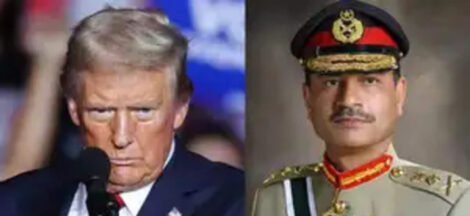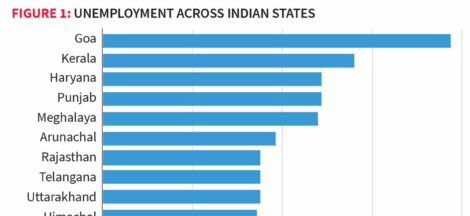The Israel-Iran war which entered its eighth day on Friday June 20 witnessed some major developments in the last 24 hours frustrating Tel Aviv’s desperate bid to speedily finish off its task of destroying Iran, especially Teheran. Chinese President Xi Jinping talked to Russian President Vladimir Putin late Thursday on the joint strategy to deal with the war. They came out with the strongest condemnation of Israeli attack so far and asked President Trump not to join Israel in the ongoing war against Iran. China also suggested a four point formula for immediate ceasefire and starting of negotiations to solve Iran’s nuclear power issue.
At the other end, the Iran foreign minister responded to the offer of the foreign ministers of Britain, France and Germany to hold talks in Geneva on Friday. Accordingly talks are taking place. Diplomatic moves have finally started. Trump also has postponed his decision to join the war against Iran by two weeks. Earlier, President office sources indicated that Trump would be taking decision on joining war by this Sunday.
Why this sudden change in Trump’s latest position to give diplomacy a chance for another two weeks when only on Wednesday, he was talking of surrender by the Iranian cleric head Ayatollah Ali Khomeini.? Apart from China Russia’s joint stand against Israel and any US participation in war supporting that country, there were other hard military factors that came to light suggesting that Iran might be shattered now, but it has the capacity to retaliate with much high tech missiles which the Iranian forces have not used yet. Apart, Pentagon is worried that Iran will be getting more sophisticated arms from China and Russia if the war continues.
The latest analysis of the London based The Guardian shows that Israel’s interceptors which are playing the key role in combating the Iranian missiles, are being exhausted and if the war continues, Tel Aviv will fall short of the requisite high powered interceptors to deal with the ballistic missiles which Iranians are having. Sources say that Israel can not win this war on its own unless USA joins. Netanyahu therefore is desperately requesting Trump to take his decision immediately and join war. Both the leaders share the same objective but they differ on strategy. Trump has to take care of the dissent among his MAGA base as also the strong position taken by China and Russia.
Trump tried his best to ensure that both President XI and President Putin were kept away from this Israel-Iran war since both were in the process of concluding deal with him. But he is upset now with President XI virtually challenging his Middle East policy openly and putting forward an alternative proposal. President Xi put forward a four-point proposal that ceasefire must be an urgent priority, ensuring civilian safety must be a top priority, dialogue and negotiation are the fundamental solutions, and the international community’s peacemaking efforts are indispensable. The formula was on the basis of his discussions with President Putin. . The coordination of positions between the Chinese and Russian leaders not only reflects the depth of strategic cooperation between the two countries, but also sends a clear message to the international community: a call to de-escalate tensions and safeguard regional peace.
According to the official Chinese view expressed by Global Times editorial on Friday, as a major power with special influence over Israel, the US has not played a constructive role. Instead, it has continued to fan the flames, even signalling a willingness to “get directly involved,” which seriously undermines the international community’s expectations for a soft landing to the crisis. With the conflict now reaching a point where “nothing can be ruled out,” the window of opportunity is extremely narrow.
As the GT sees it, the “four-point proposal” is highly targeted and addresses the core of the current issues. For example, it calls on the parties involved in the conflict, especially Israel, to halt military operations as soon as possible, to avoid harming innocent civilians, to firmly support a political solution to the Iranian nuclear issue, and urges the international community, especially major countries that have a special influence on parties to the conflict, to make efforts to cool down the situation. These are all key points where significant changes could occur under the current circumstances.
China’s position assumes importance as China has the technology to help Iran with high tech radar system and air defence mechanism to combat the Israeli missiles. According to the military experts, Iran has so far launched more than 400 missiles at Israel, but half, about 200, were launched in the initial retaliatory barrages last Friday. Since Monday the size of its missile barrages has reduced to a maximum of 15 to 20 (including 15 on Thursday afternoon), compared with up to 40 during the weekend, according to a count compiled by a US thinktank, the Institute for the Study of War. Iran’s ability to manufacture new weapons is also likely to be limited, estimated by the US to be 50 a month before the hostilities broke out. This vulnerability of Iran can be taken care of if China comes with assistance for beleaguered Iranian military. This is the latest talk in defence circles globally which is worrying Trump.
Less than four months ago, the noted economist and public intellectual Jeffrey Sachs made a prophetic statement at the European Parliament in February 2025 while assessing the relationship between the Europe and the USA in the context of the Ukraine war. He was suggesting an independent foreign policy for Europe taking into account the moves of the President Donald Trump in his second term.
Sachs said in that address “Netanyahu’s greatest dream in life is the war between the United States and Iran. And he’s not given up. It’s not impossible that a US-Iran War will also come. Yet Europe could stop it – if Europe has its own foreign policy. I’m hoping that Trump will end Netanyahu’s grip on American politics. Even if not, the EU can work with the rest of the world to bring peace to the Middle East.”
Within four months of this address, on June 13, Israel attacked Iran with its fiercest missiles and damaged the power plants, oil producing equipment and the site for nuclear power. Iran retaliated and now on the eighth day of war on June 20 the position is that the war has spread into more areas with Iran refusing to respond to Trump’s call for surrender and the religious leader Ayatollah Ali Khomeini declaring that the US will face irreparable consequences if Trump joins the war. Simultaneously with China and Russia strongly taking a position against Israel, Trump has been compelled to delay his decision. Next few days will show whether Netanyahu can achieve his objective on his own or with Trump stepping back, Israel is forced to agree to negotiate under global pressure. (IPA Service)



